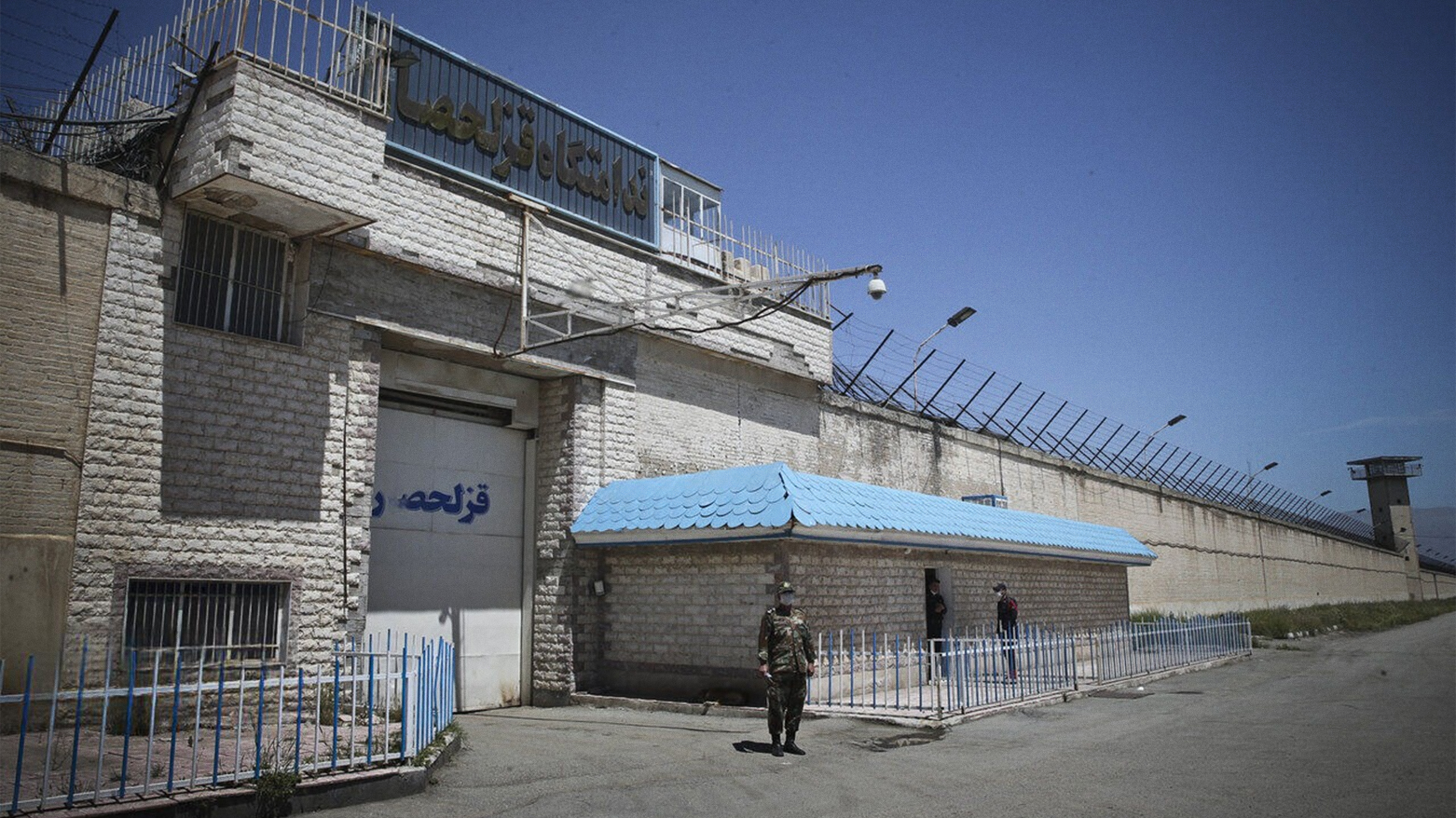Tehran Executes Iranian Man for Espionage Amid Outcry
According to Mizan, Madani attempted to transmit classified information — including “locations and buildings housing infrastructural equipment” — to Mossad through encrypted channels.

By Kamaran Aziz
ERBIL (Kurdistan24) – Iranian authorities have executed Pedram Madani, a 40-year-old Iranian man accused of espionage for Israel's Mossad intelligence agency, in what rights groups and international observers have condemned as part of a growing wave of politically charged executions in the Islamic Republic.
The execution, announced on Wednesday by the judiciary-affiliated Mizan News Agency, followed years of legal controversy, multiple Supreme Court reversals, and impassioned pleas from Madani's family and human rights activists.
Mizan stated that Madani was arrested in 2020 (1399 in the Iranian calendar) and convicted of “spying for the Israeli intelligence agency Mossad,” in addition to “illegally acquiring foreign currency (euros) and digital currency (Bitcoin) in Europe.”
According to Mizan, Madani attempted to transmit classified information — including “locations and buildings housing infrastructural equipment” — to Mossad through encrypted channels.
He was ultimately sentenced to death on charges of moharebeh (waging war against God) and efsad-fil-arz (corruption on Earth), charges that rights groups argue are broadly applied and legally ambiguous.
Madani’s mother appeared in a video one day prior to his execution, calling his case “full of ambiguities and errors.” According to Iran Human Rights (IHRNGO), he was transferred from Evin Prison to Ghezel Hesar Prison, where his family was called for a final visit.
His mother stated he had only a court-appointed lawyer, and though his sentence had once been overturned by the Supreme Court, it was reinstated by a parallel court branch.
A Pattern of Executions Linked to Mossad Allegations
As reported by BBC Persian and AFP, the Iranian judiciary emphasized that Madani had met with Mossad officers abroad, including in Brussels, and had traveled to “the occupied territories,” Tehran’s term for Israel, before his arrest.
The report added that he received illicit payments from Israeli operatives in euros and bitcoin. His case is the latest in a series of executions involving individuals accused of collaborating with Israel.
In April, Mohsen Langarneshin was executed under similar charges. As detailed by Iran Human Rights, Langarneshin, convicted of aiding Mossad in the 2022 assassination of IRGC Colonel Hassan Sayyad Khodaei, was hanged in Ghezel Hesar Prison alongside several other prisoners.
The Iran Human Rights (IHRNGO) condemned the execution as a result of an unjust trial process based on forced confessions obtained under torture. In a video, Langarneshin’s father called his son’s case “full of flaws and unanswered questions,” while Langarneshin himself, in recorded prison phone calls, described in detail the physical and psychological torture he endured during interrogation, including threats against his family to coerce false confessions.
“They chained me, blindfolded me, and told me this video is for before your execution,” he recounted.
International Condemnation and Legal Concerns
Prominent voices have condemned Madani’s execution. Olivier Grunewald, a French national previously detained in Iran, urged a halt to the execution, describing Madani as the “twentieth cellmate” sent to Ghezel Hesar for execution.
Nobel Peace Prize laureate Narges Mohammadi criticized the judiciary for denying Madani access to a self-appointed lawyer and described his trial as legally flawed.
According to IHRNGO, more than 100 people were executed in April 2025 alone. Since the start of the year, at least 113 executions have been recorded up to May 25, averaging over four per day. These include drug-related offenses, rape cases, and politically charged convictions like espionage and protest-related sentences.
Madani’s case fits a larger pattern of Iran executing individuals for alleged ties to Israel’s Mossad. The most recent wave of executions reflects escalating tensions between Tehran and Tel Aviv amid the war in Gaza and renewed nuclear negotiations between Iran and the United States.
In December 2023, Iran hanged three men and one woman for alleged collaboration with Mossad. These executions followed accusations of “waging war against God” and sabotage against state security. As reported by The Times of Israel and Al-Jazeera, the judiciary claimed the individuals had been involved in kidnapping security agents and arson attacks.
Iran’s legal system, especially the Revolutionary Courts presided over by figures like Judge Abolghasem Salavati — often dubbed the "Death Judge" — has faced repeated international scrutiny. Human rights advocates, including Amnesty International and the Abdorrahman Boroumand Center, have consistently denounced the lack of due process and widespread use of torture to extract confessions.
Shadow War Intensifies
The Iranian government has accused Israel of conducting covert operations on Iranian soil, targeting scientists and military personnel. This decades-long shadow war has become more overt, with direct military confrontations erupting in 2024.
The escalation added urgency to Tehran’s internal crackdowns, which critics argue are politically motivated and used to intimidate dissenters.
Tehran’s execution spree coincides with sensitive diplomatic efforts. As noted by Al-Jazeera, Iranian Foreign Minister Abbas Araghchi accused Israel of attempting to sabotage nuclear negotiations with the United States. Iran’s judiciary, however, maintains that its actions are lawful and necessary for national security.
The international community, including the United Nations, has repeatedly condemned Iran's use of capital punishment, particularly in politically sensitive cases. Previously, UN Human Rights Chief Volker Turk denounced Iran’s “abominable” execution rate.
As Iran continues to carry out executions at an alarming pace, the case of Pedram Madani stands as a potent symbol of the regime’s broader strategy: consolidating control at home by invoking threats from abroad. Rights groups argue that the real target is not foreign intelligence, but domestic dissent.
